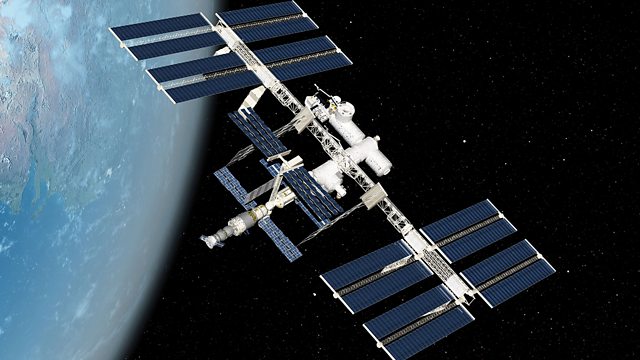Do we need more space stations?
Would more satellites and space stations help us get back to the Moon, and further into the solar system?
Satellites have transformed our lives, giving us digital communications, navigation and observations of Earth, and even an artificial place to live above the atmosphere: The International Space Station. CrowdScience listener Dana wants to know: would more of these satellites and stations help us get back to the Moon, as well as further into the solar system?
As we discovered in a previous episode, being able to mine resources such as fuel and water in space could be handy for extra-terrestrial exploration. Asteroids could perhaps one day become self-fuelling gas stations for spaceships, as many contain ice which you could turn rocket fuel (hydrogen and oxygen). But what else would astronauts need for living beyond Earth?
Marnie Chesterton asks the engineers working on the possibilities – from communications satellites that could transform lunar missions to a brand new moon-orbiting space station: The Lunar Gateway. These technologies could help humans get back to the Moon, and perhaps one day to Mars, for hopefully reduced costs – but funding missions beyond our planet still isn’t going to be cheap. Why might we need deep space-based infrastructure, and how could it help humanity back here on Earth?
Presented by Marnie Chesterton
Produced by Jennifer Whyntie for the BBC World Service
(Photo: International Space Station, orbiting Earth. Credit: The Science Photo Library)
Last on
More episodes
Previous
Clips
-
![]()
Will a woman set foot on the Moon soon?
Duration: 01:18
-
![]()
Could space ice produce 'the most valuable industry in history'?
Duration: 02:51
Broadcasts
- Fri 30 Aug 2019 19:32GMTBBC World Service except South Asia
- Sat 31 Aug 2019 23:32GMTBBC World Service
- Mon 2 Sep 2019 04:32GMTBBC World Service Online, UK DAB/Freeview, News Internet & Europe and the Middle East only
- Mon 2 Sep 2019 05:32GMTBBC World Service Australasia, Americas and the Caribbean & South Asia only
- Mon 2 Sep 2019 06:32GMTBBC World Service East and Southern Africa & East Asia only
- Mon 2 Sep 2019 10:32GMTBBC World Service West and Central Africa
- Mon 2 Sep 2019 13:32GMTBBC World Service Australasia
- Mon 2 Sep 2019 17:32GMTBBC World Service South Asia
Podcast
-
![]()
CrowdScience
Answering your questions about life, Earth and the universe




